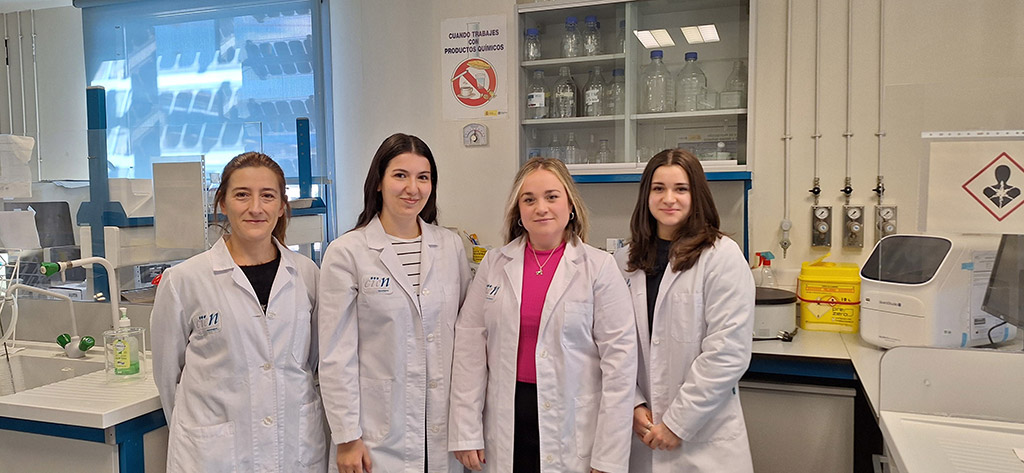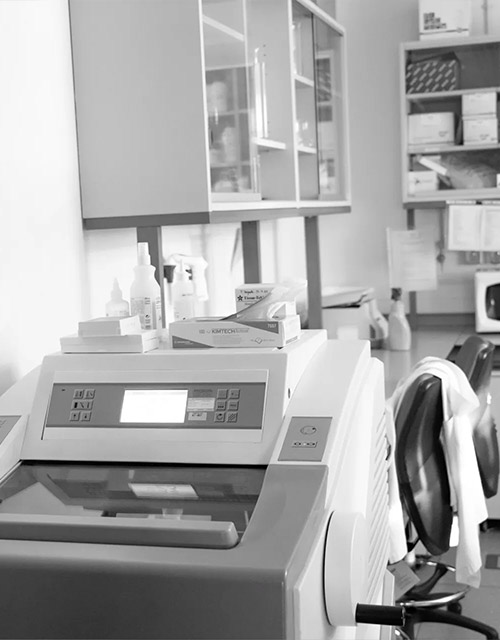
Currently, the diagnosis of neurodegenerative diseases is mainly based on clinical criteria that allow a ‘probability’ diagnostic approach, once other causes have been ruled out. Accurate diagnosis of the disease is only achieved in post-mortem studies.
Research into neurodegenerative diseases has made significant strides in recent years towards more accurate and accessible diagnosis. Among the most promising developments are new techniques for the detection of pre-mortem biomarkers capable of accurately diagnosing the disease.
These innovative methodologies surpass traditional immunoassays in accuracy, allowing for more sensitive and reliable measurements. Moreover, compared to procedures such as cerebrospinal fluid (CSF) analysis and positron emission tomography (PET), blood-based tests offer a more scalable, less invasive alternative with remarkably efficient clinical potential.
These advances open the door to earlier and more accessible diagnostics, favouring the timely initiation of treatments to slow disease progression and improve patients' quality of life.
The Biomarkers / Biochemistry and Molecular Genetics Platform of CIEN arises from the need to search for biochemical markers of neurodegenerative diseases such as Alzheimer's not only in sick patients, but also to identify cases of incipient Alzheimer's in asymptomatic patients or those with mild cognitive impairment (MCI), so that specific treatments can be initiated to stop neurodegeneration before it becomes irreversible.
Furthermore, the Platform is part of a multidisciplinary environment that includes basic researchers, clinicians, neuropathologists and neuro-radiologists, thus favouring a diverse flow of information that will be of great help in the validation of potential markers of the disease.


Senior technician in clinical and biomedical diagnostics laboratories
PhD in Cell Biology. Graduate in Biochemistry.
Graduate in Biochemistry, specialist in Neuropsychopharmacology.
Senior technician in clinical and biomedical diagnosis laboratory.
Lines of research
Search for peripheral biomarkers in biological fluids such as blood, cerebrospinal fluid (CSF) and saliva using ultra-sensitivity technology, including:
*RT Quic (Real-Time Quaking-Induced Conversion): is an innovative tool used to detect the presence of misfolded proteins, such as alpha-synuclein and tau, associated with neurodegenerative diseases. Its non-invasive nature, using biological fluids such as CSF or blood, and its ability to accurately identify pathological changes make it a promising tool for research and clinical diagnosis.
*Extracellular particles (EVs): play a crucial role in intercellular communication and have emerged as biomarkers and potential mediators in neurodegenerative diseases. These nanometric structures, released by various cell types, transport proteins, lipids and genetic material, modulating neuronal homeostasis and inflammatory response. In pathologies such as Alzheimer's disease, Parkinson's disease and ALS, EVs may facilitate the propagation of misfolded proteins, contributing to neurodegeneration. They also possess neuroprotective properties by removing toxic aggregates and regulating the immune response. Their study opens up new opportunities for the development of innovative diagnostic and therapeutic strategies in neurology.
*Searching for genetic susceptibility factors to understand predisposition to various diseases, including neurodegenerative diseases. These findings not only improve knowledge of the underlying molecular mechanisms, but may also contribute to the development of early diagnostic tools and personalised medicine strategies, allowing more effective interventions tailored to the individual genetics of each patient, based on precision medicine.
*DNA and biological samples biobank, a key infrastructure for research in neurosciences and other biomedical areas. Our biobank has:
Our biobank is a key resource for advancing our understanding of the molecular mechanisms of disease and the development of new diagnostic and therapeutic strategies.
*Research platform for external groups: we offer access to our samples and data under strict ethical and quality protocols, facilitating collaboration with other national and international research groups.
* External service for the use of SIMOA, Fujirebio and Real Time - PCR (coming soon): We offer a specialised service for research groups and companies that require the use of advanced technologies in biomarkers and molecular analysis. We have state-of-the-art platforms such as SIMOA (Single Molecule Array), which allows the ultra-sensitive detection of proteins in biological fluids; Fujirebio, recognised for its high precision in the analysis of neurodegenerative biomarkers through automated assays; and Real Time-PCR, ideal for the quantification of nucleic acids in gene expression studies and molecular diagnostics. Our team offers technical support and advice to optimise the use of these technologies in biomedical research projects.
Increased plasma DOPA decarboxylase levels in Lewy body disorders are driven by dopaminergic treatment
This study examines the role of the enzyme DOPA decarboxylase in Lewy body disorders and its relationship to dopaminergic treatment.Plasma Biomarkers in the Distinction of Alzheimer's Disease and Frontotemporal Dementia
Analysis of plasma biomarkers to differentiate Alzheimer's disease from frontotemporal dementia.Plasma Neurodegenerative Biomarkers in Cognitively Preserved Nonagenarians
Study on neurodegenerative biomarkers in 90-year-olds with preserved cognitive function.Serum GFAP levels correlate with astrocyte reactivity, post-mortem brain atrophy and neurofibrillary tangles
Analysis of serum GFAP protein as an indicator of brain atrophy and neurofibrillary tangles in Alzheimer's disease.An Insertion Within SIRPβ1 Shows a Dual Effect Over Alzheimer's Disease Cognitive Decline Altering the Microglial Response
Genetic study analysing the impact of an insertion in SIRPβ1 on the microglial response and cognitive decline in Alzheimer's disease.Non-invasive biomarkers for mild cognitive impairment and Alzheimer's disease
Exploration of non-invasive biomarkers for the detection of mild cognitive impairment and Alzheimer's disease.TRIM25 mutation (p.C168*), coding for an E3 ubiquitin ligase, is a cause of early-onset autosomal dominant dementia with amyloid load and parkinsonism
Discovery of a mutation in TRIM25 associated with early-onset autosomal dominant dementia with amyloid load and parkinsonism.